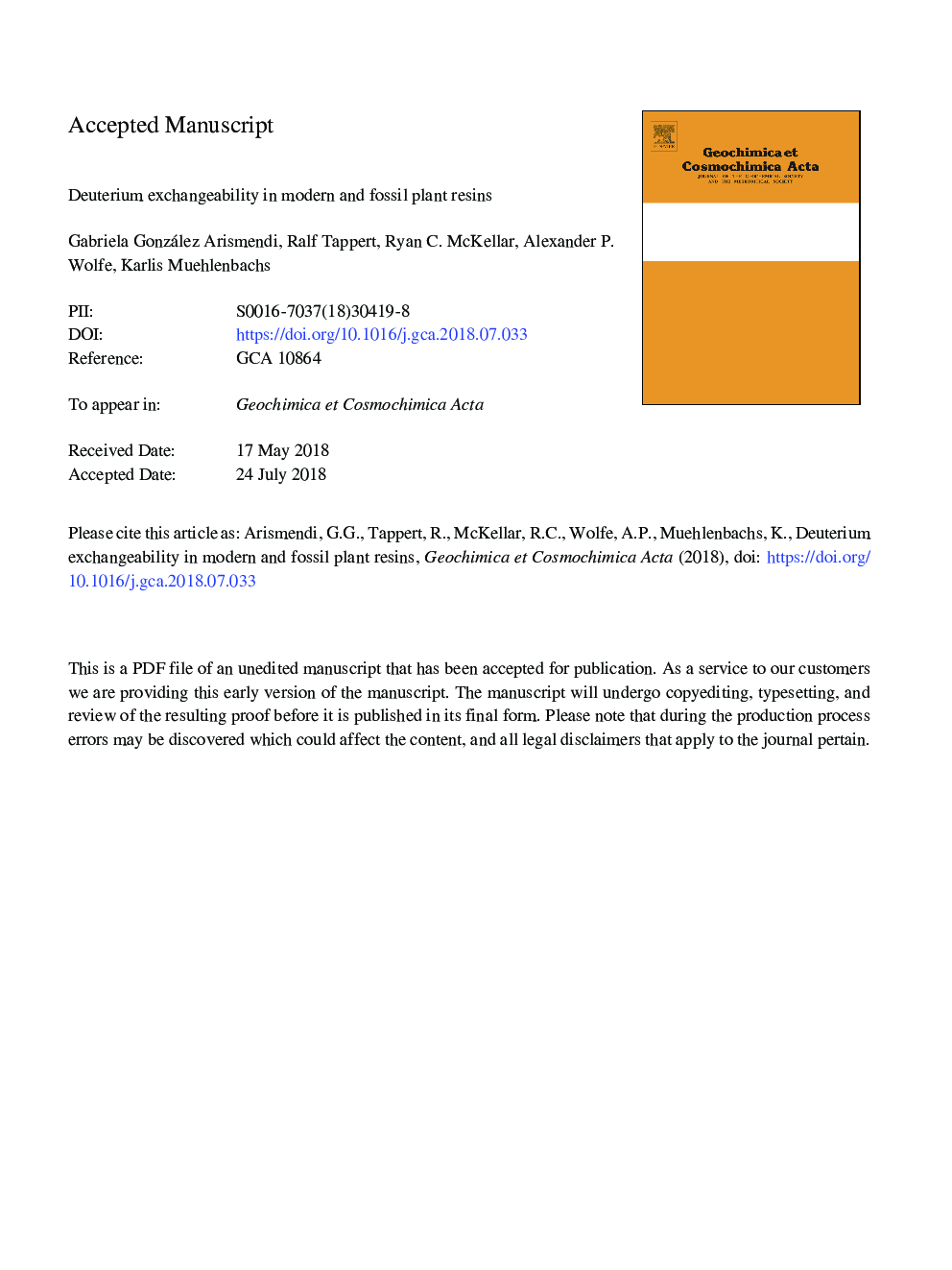| Article ID | Journal | Published Year | Pages | File Type |
|---|---|---|---|---|
| 8910569 | Geochimica et Cosmochimica Acta | 2018 | 49 Pages |
Abstract
Deuterium exchange experiments on modern and fossil plant resins (amber) were conducted to assess to what extent diagenetic alteration can overprint the stable hydrogen (δ2H) and carbon (δ13C) isotopic composition of these materials. Pairs of resins and amber fragments were placed together with deuterated water in sealed quartz-glass tubes to assure that all samples were exposed equally to the chosen experimental conditions. Experiments lasting up to one year were carried out at temperatures of 50â¯Â°C and 90â¯Â°C using water artificially enriched in deuterium (2H concentrations between 2861 and 8845â¯Âµg/g), which resulted in deuterium concentrations measured in samples well above natural concentrations (i.e., 2Hâ¯â¼â¯143â¯Âµg/g). Modern resins recorded a mean deuterium exchange with deuterium-enriched water of 2.0â¯Â±â¯0.1%, compared to 1.3â¯Â±â¯0.2% observed in their fossil counterparts. No significant changes were observed in the δ13C of modern and fossil resins during the experiments. Overall, these results indicate that the extent of 2H isotopic exchange in resins is minor and apparently occurs prior to polymerization. Consequently, the stable isotopic composition of fossil resins has the potential to serve as a useful proxy for paleoenvironmental reconstructions, given the widespread distribution of ambers in the Mesozoic and Cenozoic fossil record.
Related Topics
Physical Sciences and Engineering
Earth and Planetary Sciences
Geochemistry and Petrology
Authors
Gabriela González Arismendi, Ralf Tappert, Ryan C. McKellar, Alexander P. Wolfe, Karlis Muehlenbachs,
